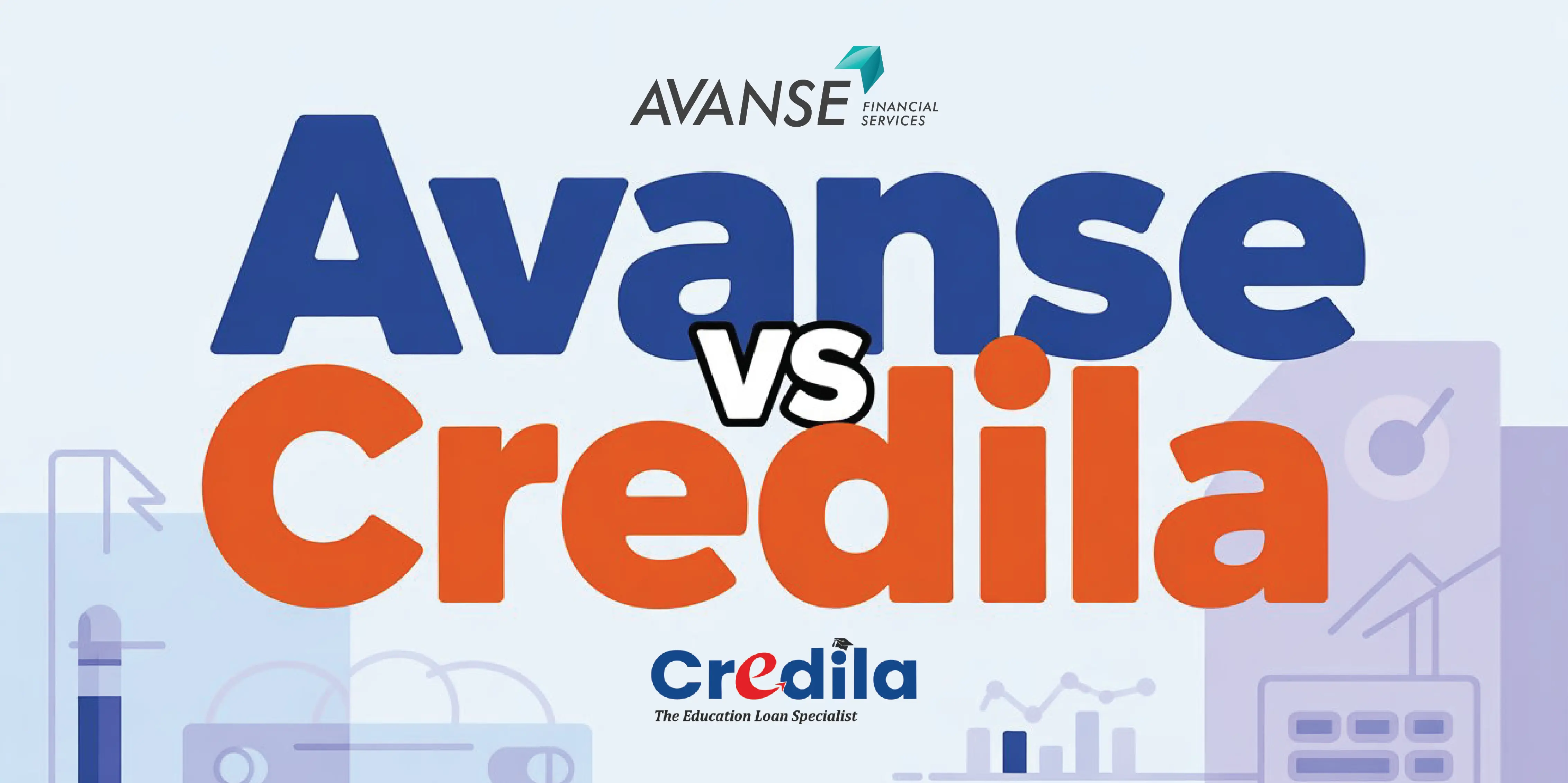https://www.wemakescholars.com/blog/top-education-loan-scams-in-india-and-how-to-avoid-loan-fraud
The Common Education Loan Scams in India and Steps to Avoid Loan Frauds
Abroad Education Loan | Updated on ()

HEST 2026
India's Largest Higher
Education Scholarship Test
Total Scholarships up to 2 Cr
Know more and Apply
Registrations close in
Education loans make higher education affordable for many students wanting to pursue their dreams. With the rising cost of education all over the world, the demand for student loans is also increasing. However, the number of education loan scams in India is also on the rise. Scammers are actively targeting vulnerable students and their families.
Did you know that over 100 students from a reputed Ahmedabad college were scammed out of ₹2.5 crores by a startup in 2023? The company took their documents with a promise of job placements with high salaries but misused them to secure ₹2.1 lakh education loans in the name of each student without their knowledge. The students didn’t realize the fraud until receiving EMI reminders for loans they never took.
Many students are falling prey to various student loan frauds. These scammers often portray themselves as legitimate financial institutes to extract sensitive financial information from the students and their families, which banks don’t require. In this article, we will discuss various education loan scams in India and how you can avoid these traps to help you stay safe from these scammers.
What are Education Loan Scams?
With the rising demand for education loans in India, many fraudsters often pose as legitimate financial institutes to scam money from students. They will target vulnerable students and families and make fake promises such as 100% loan forgiveness or debt elimination and demand sensitive information and money in the name of loan applications and upfront fees.
Students should be aware of these scams to protect themselves from becoming victims of such frauds.
Top Education Loan Scams in India
The following are the common student loan scams in India:
-
Advance Fees Scams:
One of the most common education loan scams in India involves scammers posing as banks and demanding an upfront fee from the students before the loan process. They make fake promises, offering high loan amounts, quick approvals, and very low interest rates to attract students and make them pay an advance fee before the education loan process. Once the students pay the fees upfront, these scammers will completely disappear without providing any student loan funds.
Remember, no bank in India asks for an advance fee before the loan sanction. Legitimate financial institutes charge a processing fee as part of the loan agreement, but it is not requested before the loan application.
-
Application Form Scams:
Scammers will ask for the sensitive information of the students, such as their personal and financial details, in the name of verification or the loan disbursement process. Scammers use this information to commit identity theft and obtain other loans in the student’s name.
It is important to remember that no bank will ask for sensitive information such as your credit card details, net banking password, or OTPs. Do not share such information to scammers to avoid falling prey to this scam.
-
Debt relief Frauds:
Scammers target students with an existing education loan for this scam. Scammers promise to provide 100% debt relief and completely eliminate or forgive the education loan for a fee. Scammers take advantage of the students struggling with their repayments and looking for relief options and make them fall for this scam.
Remember that a 100% debt relief or write-off on an education loan is not possible unless under certain circumstances, such as the death of the applicant.
These fraudsters also approach students with multiple education loans to scam them in the name of consolidation. They approach students with more than one education loan and promise to consolidate or merge the loans into a single loan to offer a lower rate of interest for a consolidation fee upfront. Beware of such consolidation scams in India.
-
Fake loan provider Scams:
Oftentimes, scammers pretend to be employees of legitimate banks in India and promise to offer fake education loans with very low interest rates and quick approvals to attract students. They even create fake websites and forge emails and phone calls that seem convincing to make them look authentic. Once the students show interest, they will demand an upfront fee and sensitive information of the students in the name of the loan process.
As we’ve discussed earlier, no bank will ask for an upfront fee before the loan application or your sensitive information, such as credit card details and OTPs. Do not share such information to scammers to avoid becoming a victim.
-
Fake Scholarship Scams:
In these scams, students get various calls and emails from scammers stating that they have been selected for a guaranteed scholarship program. They say that the scholarship has a deadline, and an upfront application fee has to be paid within this timeline to claim the scholarship. They will create a sense of urgency and make students pay money to them.
It is important to note that scholarship programs don’t require a fee upfront in order to apply or obtain the scholarship.
Want to get an education loan process free from any scams or frauds? Request a callback from WeMakeScholars, an organization funded and supported by the Ministry of IT, Government of India. We offer a transparent and genuine education loan support to students who want to pursue their higher education, all at free of cost, since we come under the Digital India campaign.
How to Avoid Education Loan Scams
Education loan scams create a huge financial burden for students. Here are several methods you can use to avoid education loan fraud:
Verify Credntials:
- You should verify whether your lender is registered with government or regulatory authorities in India, such as the RBI.
- Legitimate lenders will have a physical office or address, even if they operate completely online.
- Check the website of the lender to verify its authenticity.
Avoid Paying Advance Fees:
- No bank or financial institute will require a payment of advance fees before the education loan application.
- If any company or individual asks you to pay an upfront fee before the loan application, do not fulfill such demands to avoid getting scammed.
Verify Unrealistic Offers:
- Verify any offers stating unrealistic offers such as extremely low interest rates and instant approval without proper documentation.
- These can very well be scams to loot your money.
Verify the Communication Channels:
- Verify the communication channels of the lender, such as phone numbers, emails, and websites, to ensure you are communicating with legitimate employees.
- Do not share any information to unverified email addresses and phone calls.
Report Suspicious Activities:
- If you encounter any of these scams or frauds, immediately report to the appropriate authorities, such as the RBI or local law agencies.
How to Identify Education Loan Frauds
It is important to identify education loan fraud to avoid getting scammed by them. To distinguish an official education loan lender from a scammer, you should:
- Verify the physical address of the lender. Legitimate lenders have a physical office or address, even operate only online.
- If you can’t verify the address of the lender anywhere, they are most likely scammers.
- Verify the authenticity of the lender by visiting their website and look for customer reviews from the students who previously took an education loan from them.
- You should look out for websites with poor design, improper information, and too many grammar mistakes. These can very well be fake websites of the scammers.
Conclusion
The number of education loan scams in India is increasing rapidly, with scammers actively targeting vulnerable students and their families. Scammers are trapping students with convincing websites, emails, and phone calls offering unrealistic deals such as extremely low interest rates and instant approvals to attract the students. Students should avoid becoming victims of such frauds.
This article explores the common education loan scams in India, along with methods on how you can avoid such loan frauds in 2025.





Kindly login to comment and ask your questions about Scholarships & Education Loans